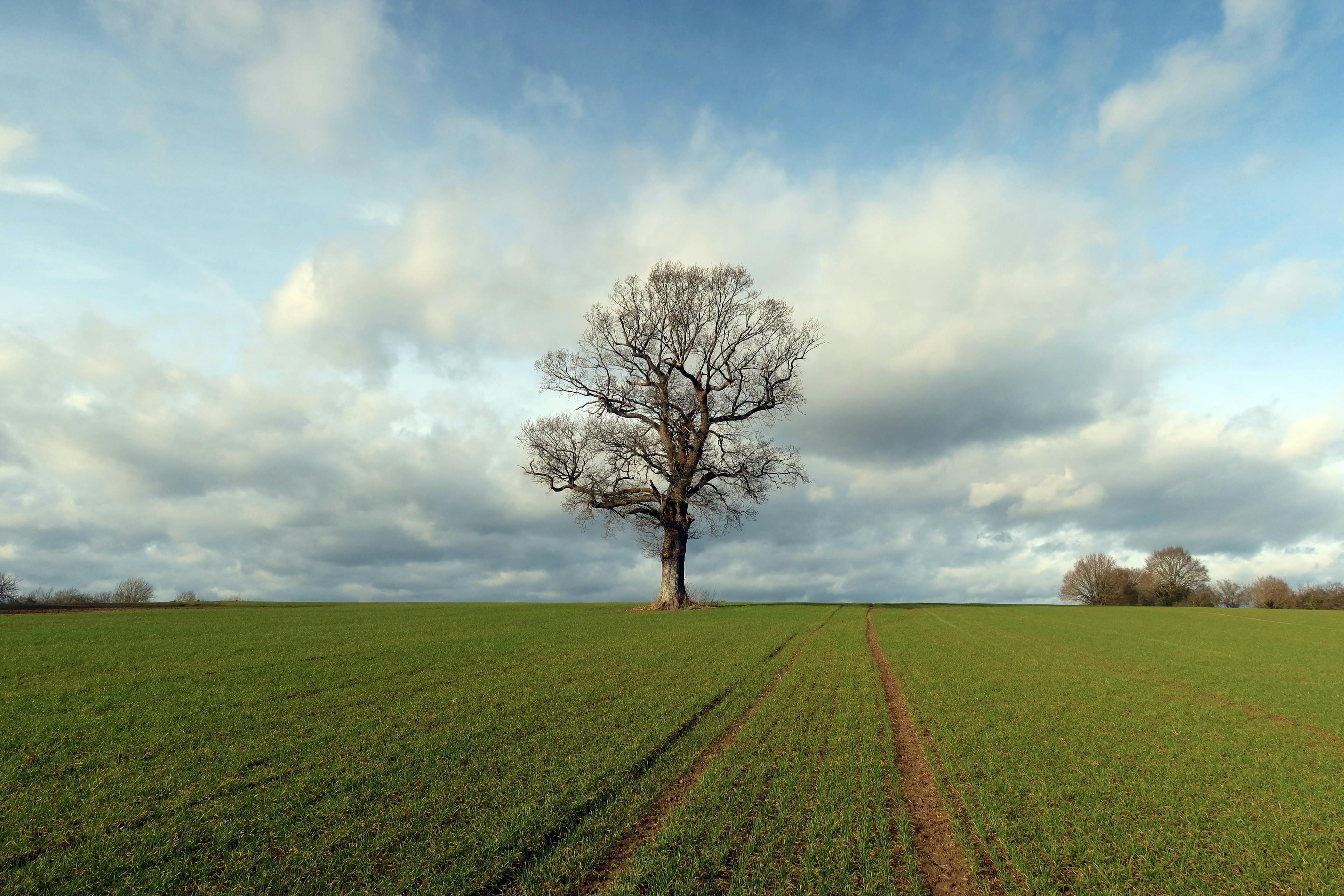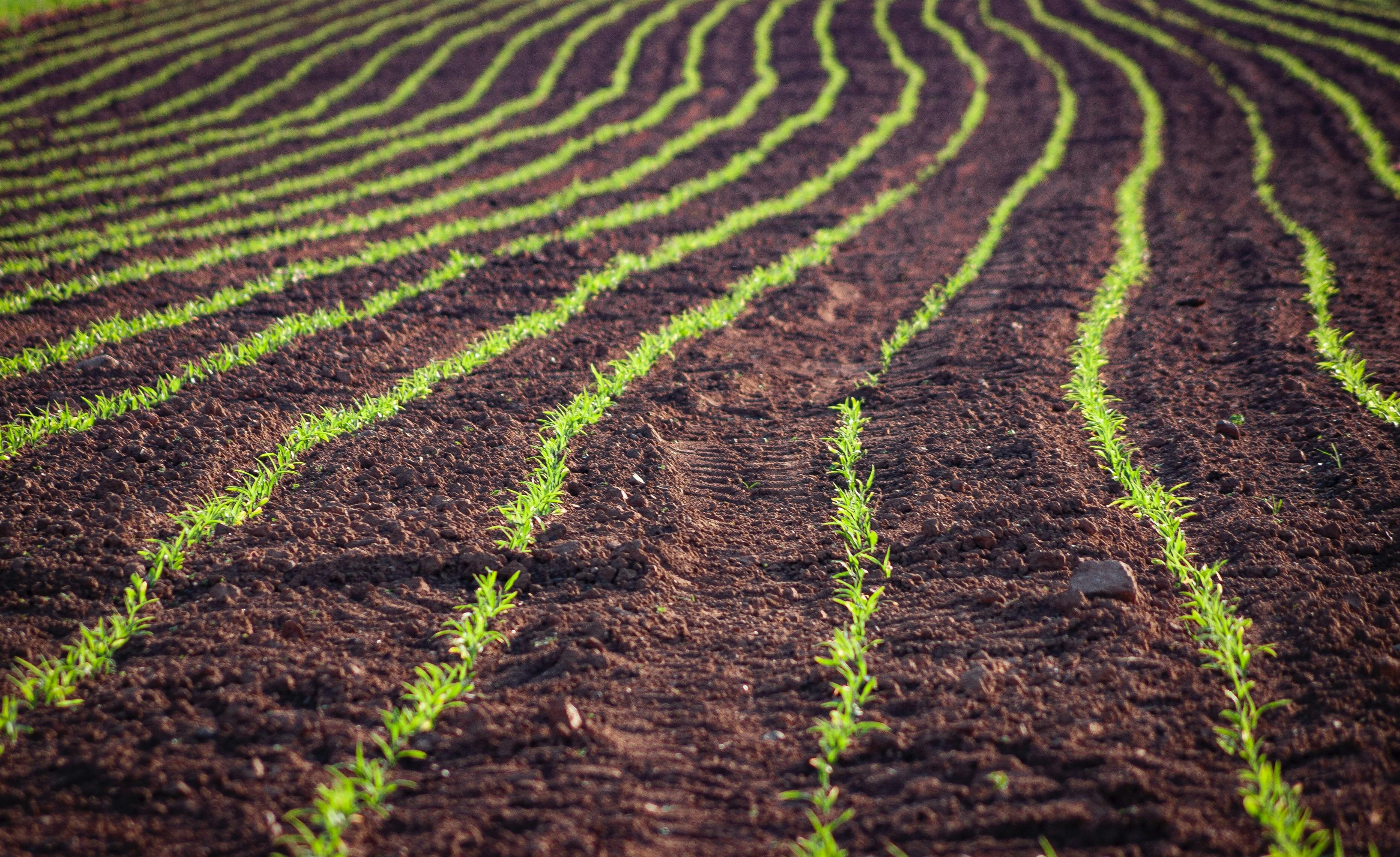How to Make Money from Land in the UK: Diversify Your Income with Renewable Energy & Beyond
27 Jun 2023

Land – it's more than just a parcel of earth, it's an invaluable asset that holds immense potential for income generation. In the UK, many landowners have acres that lie fallow, unused, or underutilised. With the shifting economic landscape and increasing ecological consciousness, there is a growing call for diversification, sustainability, and innovation in land use.
In this comprehensive guide, we explore opportunities that land across the UK can offer, going beyond the traditional agricultural or property renting schemes. We delve into renewable energy production, niche farming operations, and more.
Whether you're a farmer seeking to diversify, a landowner contemplating on how to make the most out of your property, or an entrepreneur eyeing lucrative opportunities, this guide is for you. Let's navigate together the different ways you can make money from land in the UK.
Options for Land Owners: Sell, Rent or Develop
Before we dive into the nitty-gritty of turning your land into a profitable venture, let's first consider the broader possibilities. Typically, as a landowner, options at hand include selling, renting, or developing your land.
Selling
Selling can be a preferred choice for those in need of an immediate cash injection. Intriguingly, land dominates the composition of the UK's net worth, contributing nearly 60% to the total net financial value, which stands at a formidable £10.7 trillion.
Adding to its appeal, land prices have been witnessing a steady rise over the last decade. As of 2021, the average value of farmland across the UK rose to circa £9,700 per acre, with prices typically ranging between £8,000 and £10,000 per acre.
When looking at the top three most valuable land regions in the UK, leading UK property agent Savills, concluded that East England, South East England, and the West Midlands make up the top 3 regions with the highest land values per acre.
Renting
Landowners who go down the renting route, guarantee themselves a steady stream of income over time. Opportunities include renting out your land for agriculture, housing, or even for recreational purposes. The rental rates would vary depending on the location and the purpose of renting.
Developing
Developing the land is where things get interesting. Here you can turn your land into something that can generate income in unique ways. This could be anything from setting up a renewable energy farm to establishing a glamping site or an events space.
Each choice brings along its unique opportunities and challenges. So, it's really about aligning with your personal finance vision, considering how much you're willing to invest, and factoring in the specifics of your land – its size and location. But before we dive headfirst into land development, let's first unravel some of the critical considerations you need to ponder. Up next, we've got some thoughtful insights to aid you in making an informed decision
Considerations Before Developing Your Land
When embarking on a land development project of any sorts, careful consideration and due diligence is required before going ahead with your project. Several factors come into play here:
- Location & Size of Your Land: These influence what you can do with your land. For instance, a flat piece of land by the coast might be perfect for a wind farm, while a smaller plot in an area that attracts tourists would be better suited for a campsite or glamping business.
- Acquiring The Necessary Equipment: From farming machinery to solar panels, each project will require a specific set of equipment, each with its own associated upfront and ongoing costs.
- Legalities: Some projects may require special permissions. For example, starting a solar farm in the UK requires planning permission, something you would need to check with your local planning authority. The UK Planning Portal is a great resource for this.
- Costs & Financing: Last but not least, the cost involved in land development can be significant. Depending on the scope of your project, as with the solar farm example above, you may need to seek out solar project financing options.
Although costs are reducing on infrastructure – as is the case with monocrystalline and polycrystalline solar panels – you still need to factor in administrative costs, set-up costs etc, licensing fees etc.
It's worth noting that there are specific UK grants, loans, or incentive schemes available for landowners looking to develop their land, especially for entrepreneurs looking to develop a sustainable and renewable energy business.
Remember, any venture requires ample planning and due diligence before execution to ensure its success. The ideas we'll discuss in the sections below are no exception. So, let's explore these opportunities that can potentially turn your land into a lucrative venture.
Renewable Energy Production: Solar & Wind Farms
The global shift to renewable energy is speeding up with landowners in a unique position to contribute to this shift whilst profiting from it. Solar and wind farms continue in popularity across the UK and for good reason.
The UK government has ambitious targets for renewable energy, which makes this sector attractive for investment. Moreover, the falling costs of solar and wind technologies mean that setting up such projects can be economically viable.
The size, location, and geography of your land can determine which type of renewable energy farm is suitable. For instance, open, flat land with plenty of sun exposure is ideal for a solar farm. Take a look at our guide on the solar farm development process to find out more.
In contrast, wind farms require large, open areas, often in elevated or coastal regions, where wind speeds are higher.
Bear in mind that both solar and wind farms require significant upfront investment, but they can offer long-term profitability through power purchase agreements (PPAs) with energy providers, or through government-backed schemes including the Smart Export Guarantee (SEG). It's also worth noting that renewable energy projects can benefit from various government grants and schemes aimed at promoting green energy.
Click through to find out more about solar project financing or wind power project financing.
PF Nexus provides users access to an ecosystem database of 4,600 professionals that operate in the renewable energy project development space. If you’re looking for assistance with your project be it guidance or, you’re seeking financing for your project, sign up to our renewable energy project marketplace to get started.
Community Gardens or Allotments
Community gardens or allotments can bring communities together and promote sustainable living, but did you know they can also be a source of income for landowners?
Renting out a portion of your land as allotments can provide a steady income, especially in urban or suburban areas where garden space is limited.
The costs to set up an allotment can be relatively low. Depending on the size and condition of your land, the primary costs will go towards clearing, dividing plots, and providing access to water.
Rental Spaces for Campers, Caravans, & Glampers
The rise of staycations and domestic tourism in the UK, amplified by the COVID-19 pandemic, has seen an increased demand for unique and outdoor holiday experiences.
As a result, camping, caravanning, and particularly glamping have surged in popularity. In fact, as reported by the UK Caravan & Camping Alliance, the UK is on course to cultivate a tourism industry worth over £275 billion by 2025.
This ambitious goal is corroborated by the impressive growth of the global glamping market, which reached $2.35 billion in 2021 and is projected to grow at a CAGR of 10.9% from 2022 to 2030 as reported by Canopy & Stars.
If you own land in a picturesque location or near areas that attract large volumes of tourists, setting up a campsite, caravan site, or a glamping site can be an excellent way to generate income. Differentiating your site with unique accommodation options, such as yurts, teepees, or shepherd's huts, can increase its appeal.
Remember, setting up such a business will require investment and planning. Permission may be required, and facilities like bathrooms and electric hookups will need to be set up. However, the returns can be worthwhile, especially in the peak holiday seasons.

Diversifying Farming Yields: New Farming Opportunities
Traditional farming can be a tough business with often slim profit margins. One way to boost your income from farming is by diversifying your yields and venturing into less traditional, but potentially more profitable, farming activities. Let's delve into some of the options:
- Bee Farming: Honey is a valuable product, and with the decline in bee populations worldwide, bee farming can be a rewarding and environmentally beneficial venture. British honey is highly regarded, and local, raw honey can fetch high prices. Additionally, beeswax and propolis can be sold to supplement the income. The market is ripe for expansion as the UK consumes about 43,000 tons of honey per year as of 2021, with 95% of the demand met by imports from different countries KBV Research. What makes potential investment in honey even sweeter is the fact that the sector is anticipated to grow annually by 4.1% through 2024.
- Fish Farming: Particularly, trout farming can be profitable in the UK. Trout is a popular fish in the country, and the demand for locally sourced, sustainable produce is high. An added benefit is that trout farms can be used for recreational fishing, offering another income source. ChalkStream provides a fantastic case study of locally sourced, sustainable trout farming in the UK.
- Specialty Farming: Growing high-value crops can also be an excellent way to increase your farming income. Some high-value crops suitable for the UK climate include organic vegetables, herbs, and niche products like truffles. Keep in mind, these typically require more effort to grow and market but can fetch higher prices compared to conventional crops. One such example, the truffles market, is expected to grow at a CAGR of 10.91% globally by 2027, with its market size increasing by $309.72 million.
Establishing a Vineyard or Orchard
The UK might not be the first place that comes to mind when you think of vineyards, but the country's wine industry is booming. The warming climate has made the South and South East of England particularly suitable for vineyards.
The shifts in climate due to global warming are now leading producers to seek cooler climates. The climate in France is starting to get too hot to grow traditional varieties, prompting a search for alternative sites.
In fact, Taittinger, the renowned Champagne house, is set to launch its first English-made sparkling wine in 2024, under the Domaine Evremond brand, having planted vines in Kent in 2017.
The rising involvement of established wine producers in the English vineyard scene is a telling sign of its lucrative potential. Other prominent Champagne producers have also been buying up swathes of land in southern England, attracted by the chalky soils – much like those in northern France – and the shifting climate conditions that are fostering the creation of premium sparkling wines.
However, it's worth noting that setting up a vineyard requires substantial knowledge, skill, and investment. An alternative might be leasing your land to a wine company. If you are interested in a less daunting project, establishing an orchard might be a more viable option. Apple orchards, for instance, can be a profitable venture, with products ranging from apples for direct sale, to cider production, to apple preserves.
Wedding and Events Space
The UK wedding industry is a highly lucrative sector. As of 2021, it was valued at an impressive £14.7 billion, indicating the vast potential for income generation in this market. Moreover, a staggering £28 billion in revenue is forecast for 2022 & 2023. This underscores the growing trend of couples seeking unique, non-traditional venues for their big day.
If your land is scenic, with great views or encompasses unique features, it could potentially become a desirable wedding and event location.
Transforming your land into an event space will likely require significant initial investment, depending on the existing infrastructure. Facilities like an event barn, marquee, outdoor lighting, restrooms, and parking facilities may need to be established. Furthermore, you would need to secure the necessary permissions and licenses, such as a wedding venue license.
Once set up, however, the returns can be substantial. Aside from weddings, your space could host corporate events, music festivals, and other special occasions. Offering additional services such as in-house event planning or partnerships with local caterers can add further revenue streams.

Storage Facilities
There are several ways to turn unused land into profitable storage facilities. One approach is to rent out space for the storage of agricultural machinery. Farmers often have a need for seasonal storage, and having a local, affordable option can be attractive.
On the more commercial end, there's a growing demand for warehouse space, particularly as e-commerce continues to boom. Companies like Amazon, and many other online retailers and logistics providers, often need localised storage and processing facilities.
Developing commercial storage facilities will typically require substantial investment, including the construction of suitable buildings, ensuring proper security, and potentially hiring staff. However, the potential returns can be significant, especially if your land is located near major transport routes or urban centres.
Remember, the potential uses of your land are diverse, but the profitability of each idea will largely depend on your individual circumstances such as the size and location of your land, your available resources, and your personal interests and skills.
Conclusion
There's no denying that land in the UK holds significant potential for money-making opportunities. Whether it's renewable energy production, farming diversification, or event hosting, these business ideas can convert your unused land into a profitable venture.
The key to success is understanding the requirements and challenges of your chosen venture and planning accordingly. With due diligence, and sometimes creativity, your land can become a valuable asset that brings a significant return on investment.
The journey to unlocking the income potential of your land can be exciting and rewarding. While there are numerous opportunities available, the right choice will depend on the individual attributes of your land and your personal and financial objectives.
If you’re interested in finding out more about how your land can be used to generate additional income streams through renewable energy generation, get in touch with PF Nexus today.